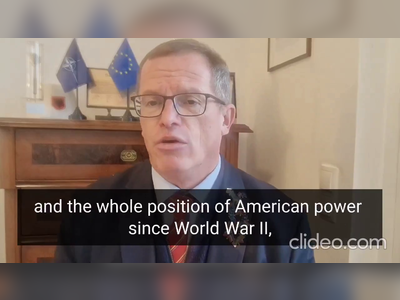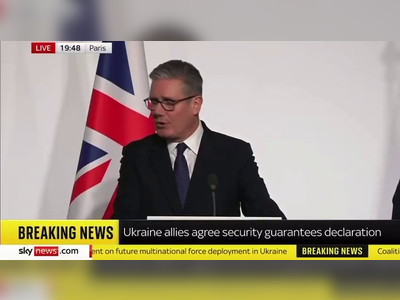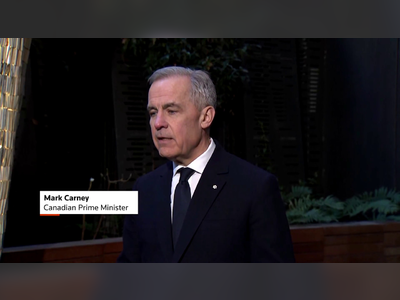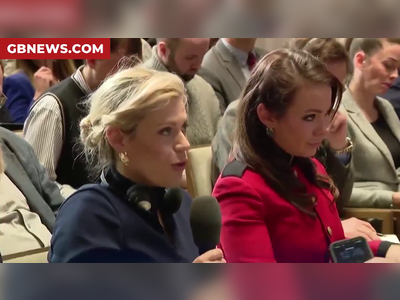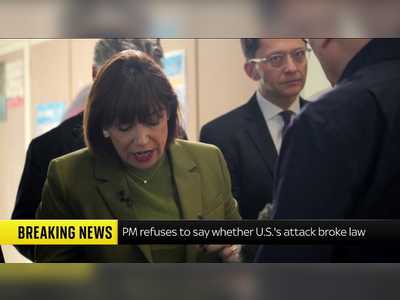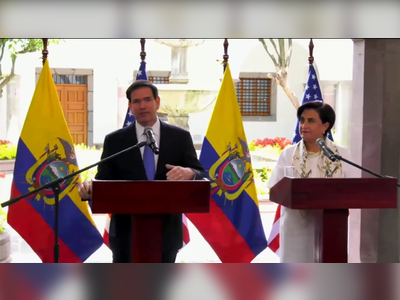Elon Musk Sparks Debate with Praise for Germany's Far-Right AfD Leader on Social Media
The controversial endorsement raises questions about political neutrality and regulatory compliance in digital media.
Elon Musk, the influential CEO of Tesla and SpaceX, has stirred controversy by publicly endorsing Alice Weidel, co-leader of Germany's far-right Alternative für Deutschland (AfD) party, during a live discussion on his social media platform, X.
The meeting, which took place on Thursday, has added to concerns regarding Musk's apparent support for far-right, anti-establishment parties across Europe, as well as criticisms of interference in Germany's upcoming election scheduled for February 23.
The nearly 75-minute virtual discussion between Musk and Weidel saw the billionaire express his belief that 'only the AfD can save Germany,' a statement that has been met with significant backlash.
The AfD, known for its anti-immigrant and pro-Kremlin stance, currently trails only the conservative CDU/CSU in national polls, with 21.5% support.
Throughout the conversation, Musk and Weidel touched on a wide range of topics including energy policy, education reform, immigration, and bureaucracy in Germany.
They also delved into philosophical discussions referencing Douglas Adams and Schopenhauer, and considered geopolitical issues like the Israel-Palestine conflict and the swift resolution of the Ukraine war—attributing potential success in the latter to former U.S. President Donald Trump.
Musk's mispronunciation of Weidel's name notwithstanding, the tone was broadly amicable, with both parties expressing dissatisfaction with 'woke' ideologies.
Musk's statements about Trump’s potential role in resolving international conflicts drew attention, although he deflected detailed questions about how these outcomes might be achieved, citing his reluctance to speak on behalf of Trump.
Among more futuristic topics, Musk spoke of his ambition to send human expeditions to Mars within the next four years, aligning this vision with his idea of Martian civilizations offering aid to Earth, analogous to historical interventions like America's role in World War II.
The conversation concluded with philosophical musings, where Musk highlighted his perspective on life's deeper questions, a sentiment inspired by his teenage engagement with philosophical works.
Since Musk's endorsement of the AfD last month—despite the party's classification as right-wing extremist by German intelligence—his comments have sparked widespread debate.
His criticism of German President Frank-Walter Steinmeier and Chancellor Olaf Scholz, alongside an opinion piece justifying the AfD's politics, have intensified scrutiny.
In response to Thursday's live session, the European Commission stated it would assess whether the discussion adhered to the Digital Services Act (DSA).
LobbyControl, a group advocating for transparency in European politics, is closely examining the event for potential breaches of German campaign finance laws.
Concern over Musk's perceived interference in German politics has prompted an investigation by Germany’s lower parliamentary chamber into the legality of the digital dialogue.
A spokesperson for Weidel refuted allegations of illegal contributions, framing the talk as an expression of free speech.
Germany's federal network agency has pledged to monitor any manipulations of platform algorithms around the discussion, with plans to relay findings to the DSA as needed.
The international repercussions of Musk's conversation underscore the ongoing dialogue over digital platforms' role in political discourse, highlighting the delicate balance between free speech and regulatory oversight.
The meeting, which took place on Thursday, has added to concerns regarding Musk's apparent support for far-right, anti-establishment parties across Europe, as well as criticisms of interference in Germany's upcoming election scheduled for February 23.
The nearly 75-minute virtual discussion between Musk and Weidel saw the billionaire express his belief that 'only the AfD can save Germany,' a statement that has been met with significant backlash.
The AfD, known for its anti-immigrant and pro-Kremlin stance, currently trails only the conservative CDU/CSU in national polls, with 21.5% support.
Throughout the conversation, Musk and Weidel touched on a wide range of topics including energy policy, education reform, immigration, and bureaucracy in Germany.
They also delved into philosophical discussions referencing Douglas Adams and Schopenhauer, and considered geopolitical issues like the Israel-Palestine conflict and the swift resolution of the Ukraine war—attributing potential success in the latter to former U.S. President Donald Trump.
Musk's mispronunciation of Weidel's name notwithstanding, the tone was broadly amicable, with both parties expressing dissatisfaction with 'woke' ideologies.
Musk's statements about Trump’s potential role in resolving international conflicts drew attention, although he deflected detailed questions about how these outcomes might be achieved, citing his reluctance to speak on behalf of Trump.
Among more futuristic topics, Musk spoke of his ambition to send human expeditions to Mars within the next four years, aligning this vision with his idea of Martian civilizations offering aid to Earth, analogous to historical interventions like America's role in World War II.
The conversation concluded with philosophical musings, where Musk highlighted his perspective on life's deeper questions, a sentiment inspired by his teenage engagement with philosophical works.
Since Musk's endorsement of the AfD last month—despite the party's classification as right-wing extremist by German intelligence—his comments have sparked widespread debate.
His criticism of German President Frank-Walter Steinmeier and Chancellor Olaf Scholz, alongside an opinion piece justifying the AfD's politics, have intensified scrutiny.
In response to Thursday's live session, the European Commission stated it would assess whether the discussion adhered to the Digital Services Act (DSA).
LobbyControl, a group advocating for transparency in European politics, is closely examining the event for potential breaches of German campaign finance laws.
Concern over Musk's perceived interference in German politics has prompted an investigation by Germany’s lower parliamentary chamber into the legality of the digital dialogue.
A spokesperson for Weidel refuted allegations of illegal contributions, framing the talk as an expression of free speech.
Germany's federal network agency has pledged to monitor any manipulations of platform algorithms around the discussion, with plans to relay findings to the DSA as needed.
The international repercussions of Musk's conversation underscore the ongoing dialogue over digital platforms' role in political discourse, highlighting the delicate balance between free speech and regulatory oversight.
AI Disclaimer: An advanced artificial intelligence (AI) system generated the content of this page on its own. This innovative technology conducts extensive research from a variety of reliable sources, performs rigorous fact-checking and verification, cleans up and balances biased or manipulated content, and presents a minimal factual summary that is just enough yet essential for you to function as an informed and educated citizen. Please keep in mind, however, that this system is an evolving technology, and as a result, the article may contain accidental inaccuracies or errors. We urge you to help us improve our site by reporting any inaccuracies you find using the "Contact Us" link at the bottom of this page. Your helpful feedback helps us improve our system and deliver more precise content. When you find an article of interest here, please look for the full and extensive coverage of this topic in traditional news sources, as they are written by professional journalists that we try to support, not replace. We appreciate your understanding and assistance.



